Vietnam is located in the world 's "stone belt", with about 2-12% of the population suffering from urinary stones, of which kidney stones account for 40%.
Associate Professor, Dr. Vu Le Chuyen, Director of the Center for Andrology and Nephrology, Tam Anh General Hospital, Ho Chi Minh City, Honorary President of the Vietnam Nephrology and Urology Association, announced the above information at the 2023 Southeast Asian Urology Conference in Ho Chi Minh City on September 7-9, adding that it is estimated that the country has about 5 million people with kidney disease and 8,000 new cases each year.
"The number of patients is increasing due to many reasons, mainly due to lifestyle, the habit of drinking little water, eating salty foods, urinary tract infections, metabolic diseases, and lack of exercise," said Dr. Chuyen. Many Vietnamese people have urinary stones that can lead to infections, urinary tract obstruction, kidney failure, etc.
This is a common situation in Southeast Asian countries, not just Vietnam. The US National Library of Medicine records that people in Southeast Asia have the highest rate of urinary stones in the world, at 5-19%, and are located in the world's "stone belt". Professor Samuel Vincent G. Yrastorza, President of the Federation of ASEAN Urological Associations, explained that ASEAN countries are similar in geographical location, genetic code, skin color, climate, living environment... so they have common urinary diseases such as stones and prostate.
Urinary stones include kidney stones, ureteral stones, bladder stones, urethral stones..., more common in Vietnamese men than women. Among the types of urinary stones, kidney stones are the most common. Kidney stones form silently in the body, depositing over time, often without obvious signs. Regular ultrasound helps detect stones before complications occur.
Stones that do not cause urinary tract obstruction or are smaller than 5 mm in size, do not cause pain, infection... do not need treatment. People with stones need to drink enough water, exercise regularly, and can take stone-dissolving medicine as prescribed by a doctor.
In case the stones cause blockage, pain, infection and impaired kidney function, or symptoms of pain in the back, abdomen or hips, blood in urine, burning sensation in urine, passing stones in urine, fever, nausea..., the patient needs to go to the hospital for examination. Depending on the location of the stones and the patient's physical condition, the doctor will prescribe different treatment methods.
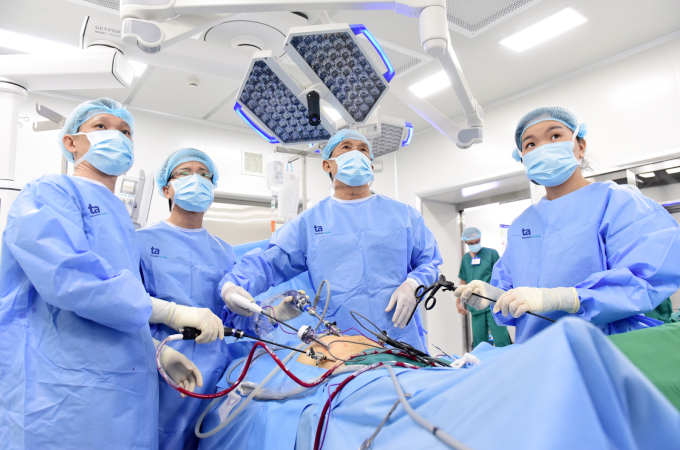
Doctors in a demonstration surgery at the 2023 Southeast Asian Urology Conference on September 7. Photo: Tam Anh General Hospital
There are many methods to treat urinary stones such as open surgery, extracorporeal shock wave lithotripsy, percutaneous stone removal, retrograde endoscopic lithotripsy with rigid endoscope, retrograde endoscopic lithotripsy with flexible endoscope...
According to Dr. Phan Huynh Tien Dat, Tam Anh General Hospital, Ho Chi Minh City, retrograde endoscopic lithotripsy with a flexible endoscope helps remove stones effectively, with few remaining stones, preserving maximum kidney function, leaving no scars, and limiting infection. "Over the past two years, my colleagues and I have performed this technique on 53 cases, dissolving 95% of stones," said Dr. Dat.
Professor Samuel believes that the cost of medical examination and treatment in Vietnam is at an average level compared to developed countries, attracting international patients for treatment. From there, the health sector has the opportunity to retain patients for local treatment and import foreign patients, developing medical tourism services.
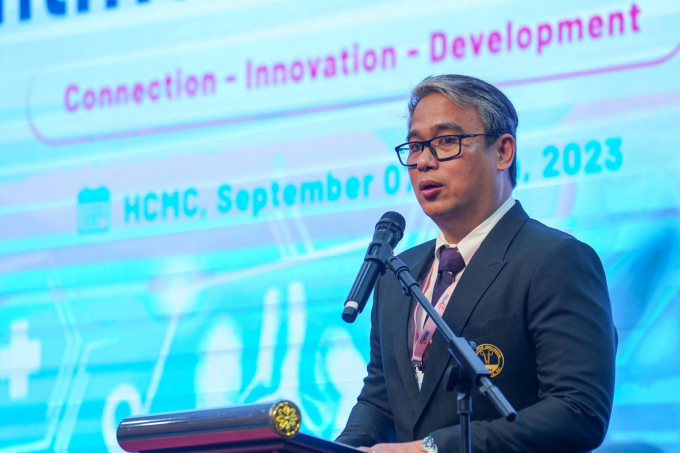
Professor Samuel speaks at the 2023 Southeast Asian Urology Conference in Ho Chi Minh City on September 7. Photo: Tam Anh General Hospital
Sharing this view, Associate Professor Chuyen assessed that in recent years, Vietnam has successfully applied advanced urological treatment techniques in the world, such as robot-assisted laparoscopic surgery and reproductive health support techniques related to the urinary tract. Thanks to this, the domestic urological treatment industry has developed strongly, improving the quality of medical examination and treatment for the people.
Huyen My - Kien Lap
| Readers send questions about urology and andrology here for doctors to answer |
Source link







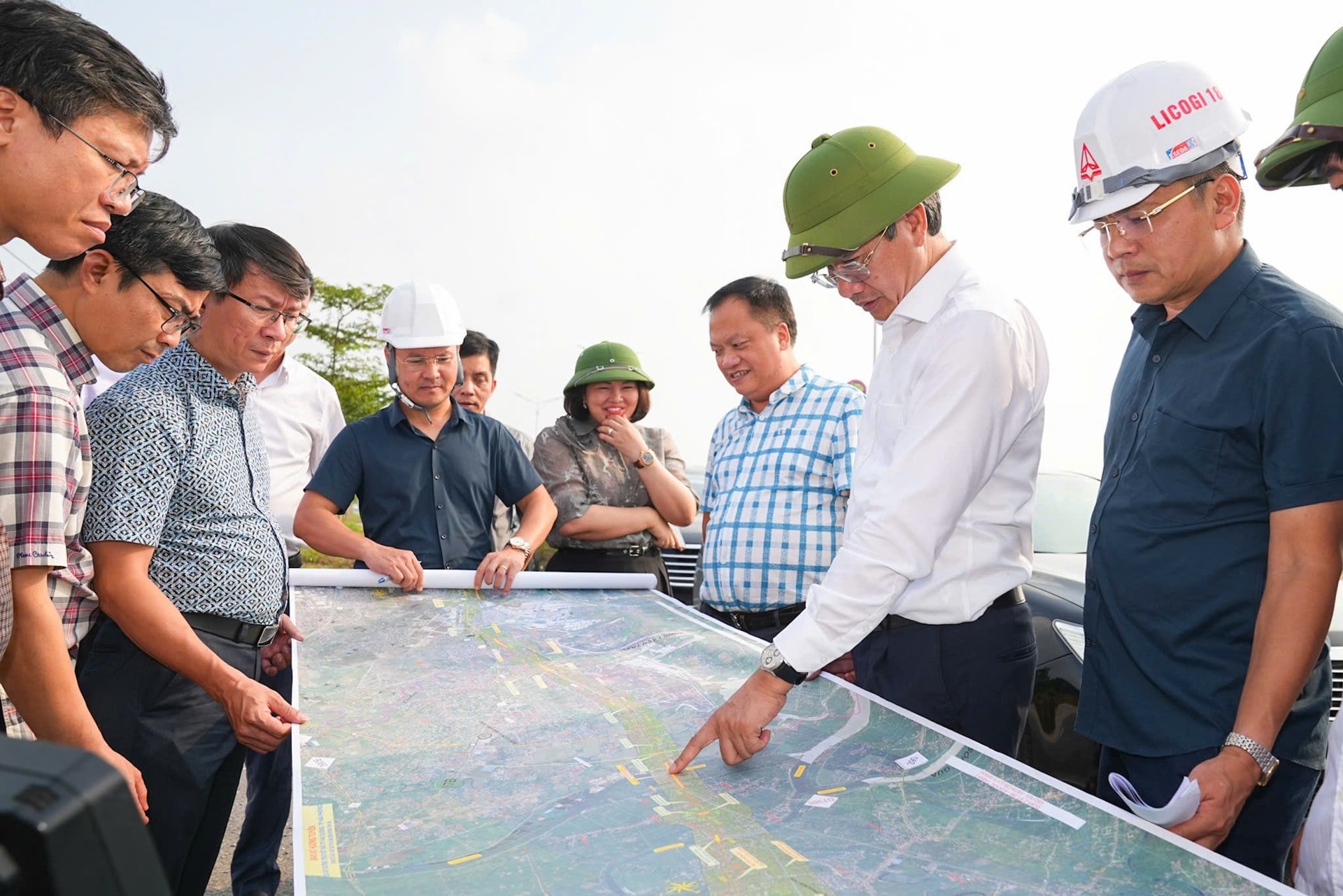

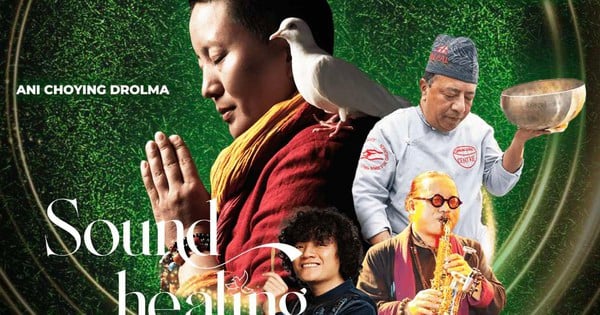
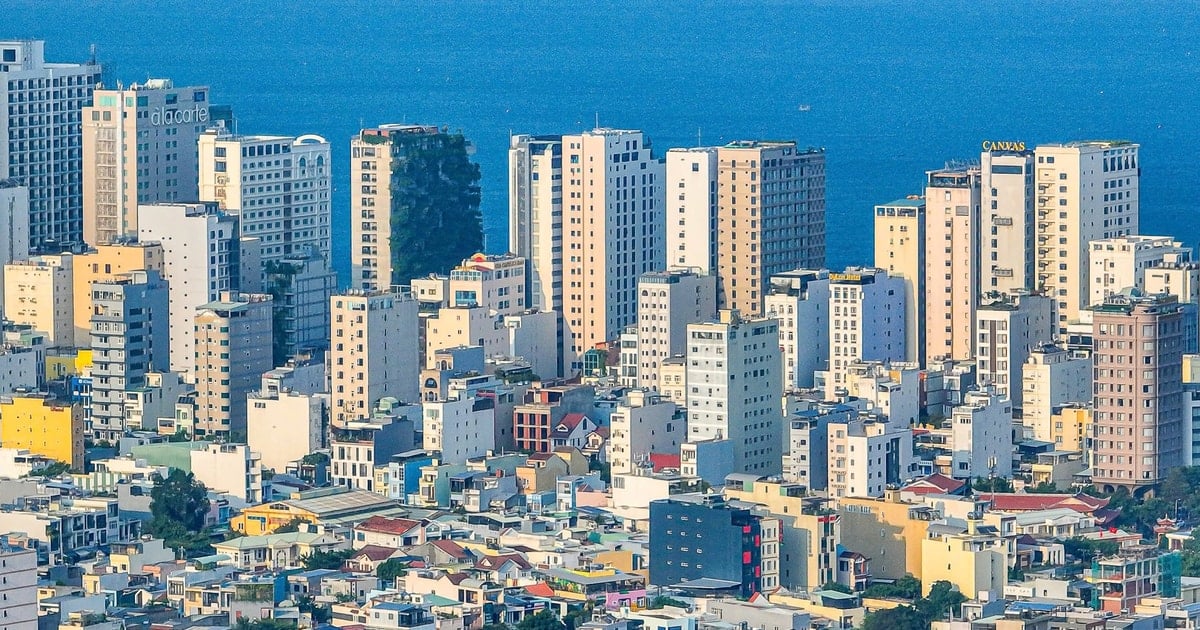

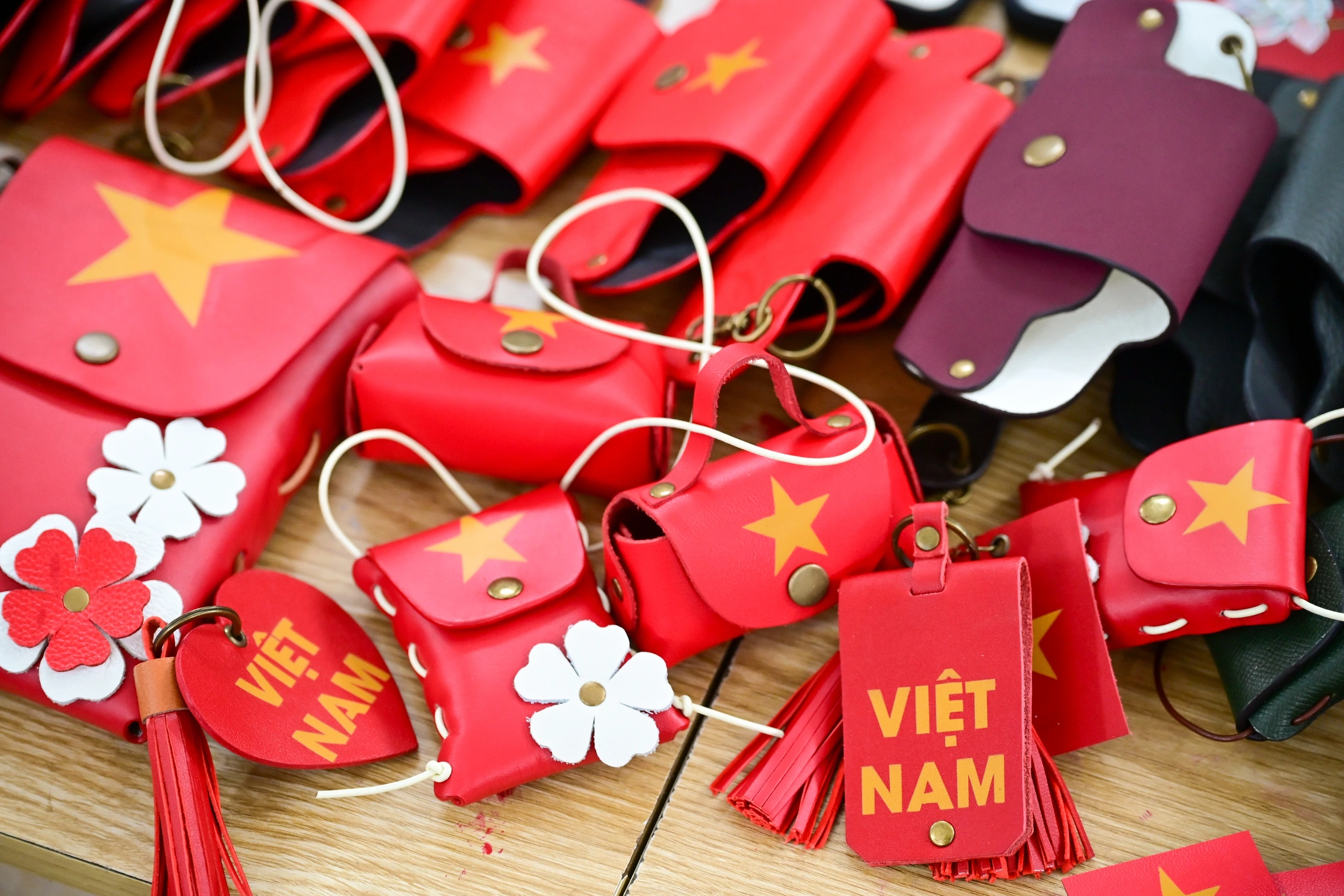











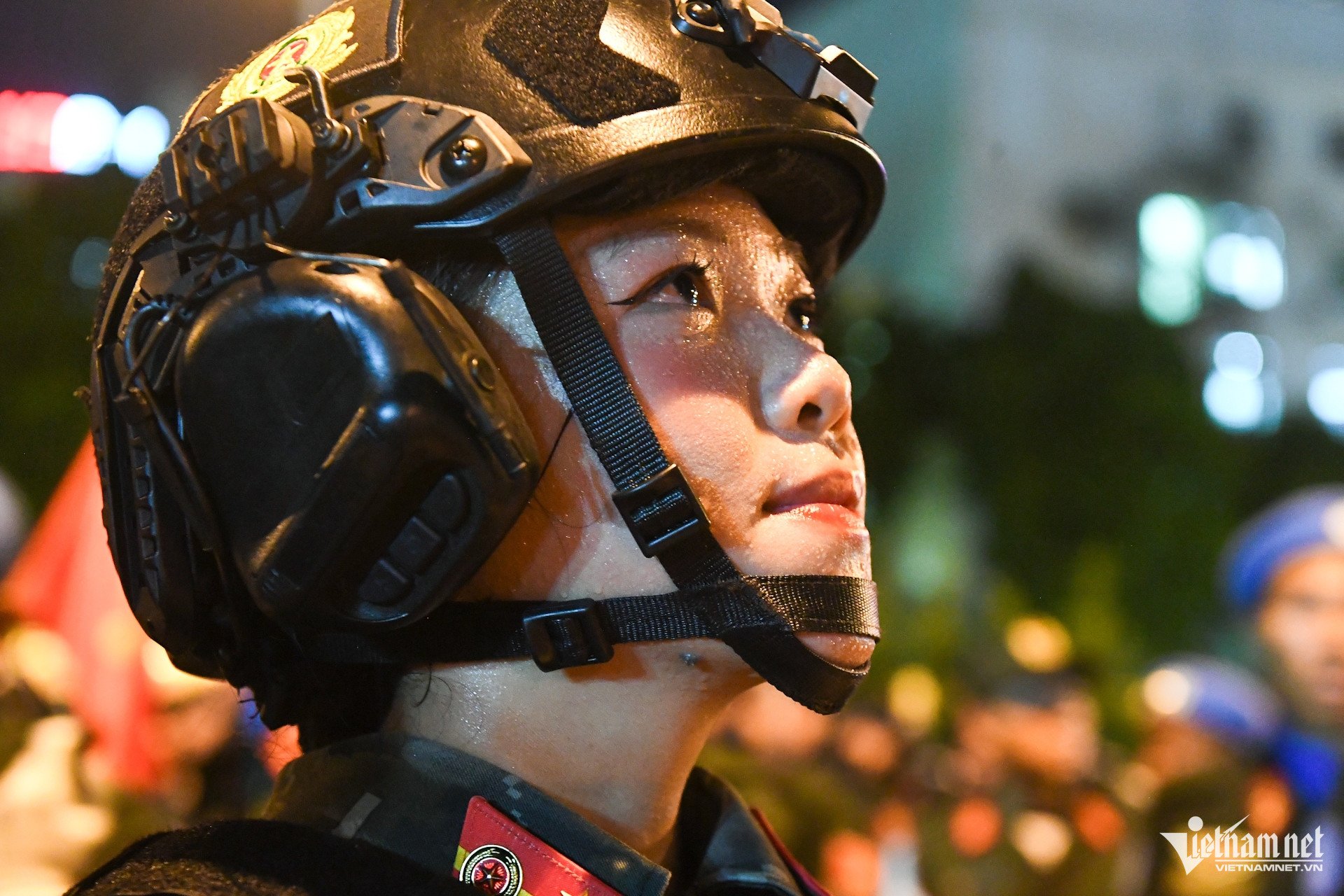




![[Photo] New look of the coastal city on the Han River](https://vstatic.vietnam.vn/vietnam/resource/IMAGE/2025/8/22/26f58a4a29b9407aa5722647f119b498)



































































Comment (0)